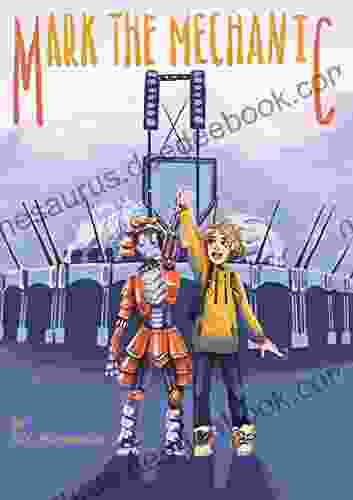Literacy Theory As Practice: Unlocking the Power of Words

Literacy is a fundamental human right and a key to unlocking a world of opportunities. It is the ability to read, write, and communicate effectively, and it is essential for personal, social, and economic development.
Literacy theory is the study of literacy and its development. It explores the complex relationship between theory and practice in literacy education, and it seeks to understand how literacy can be used to empower individuals and communities.
In this article, we will provide a comprehensive overview of literacy theory as practice. We will discuss its history, key concepts, and major debates. We will also explore the implications of literacy theory for literacy education and research.
4.6 out of 5
| Language | : | English |
| File size | : | 5828 KB |
| Text-to-Speech | : | Enabled |
| Screen Reader | : | Supported |
| Enhanced typesetting | : | Enabled |
| Word Wise | : | Enabled |
| Print length | : | 240 pages |
The history of literacy theory can be traced back to the ancient Greeks. Plato and Aristotle were among the first philosophers to write about the importance of literacy, and they argued that it was essential for developing critical thinking skills and for participating in civic life.
In the Middle Ages, literacy was primarily confined to the clergy and the nobility. However, the invention of the printing press in the 15th century made it possible for more people to learn to read and write. This led to a surge of interest in literacy theory, and scholars began to develop new methods for teaching reading and writing.
In the 19th century, literacy theory began to be influenced by the scientific method. Researchers began to use empirical methods to study literacy development, and they sought to identify the factors that contribute to literacy success. This research led to the development of new theories about how people learn to read and write, and it also helped to inform literacy instruction.
In the 20th century, literacy theory became increasingly interdisciplinary. Scholars began to draw on insights from fields such as linguistics, psychology, sociology, and anthropology to develop a more comprehensive understanding of literacy. This interdisciplinary approach has led to a number of new theories about literacy, and it has also helped to shape literacy education and research.
Literacy theory is a complex field of study, and there are many different theories about literacy. However, there are a few key concepts that are common to most theories. These concepts include:
- Literacy is a social practice. Literacy is not simply a set of skills that individuals possess. It is a social practice that is shaped by the culture and context in which it is used.
- Literacy is a process. Literacy is not a static state. It is a process that develops over time. Individuals learn to read and write through a series of interactions with texts and other people.
- Literacy is a power. Literacy is a powerful tool that can be used to empower individuals and communities. It can help people to gain access to information, to communicate their ideas, and to participate in civic life.
There are a number of major debates in literacy theory. These debates include:
- The debate over the definition of literacy. There is no single, universally accepted definition of literacy. Some scholars define literacy as the ability to read and write, while others argue that it includes a wider range of skills, such as the ability to communicate effectively and to use technology.
- The debate over the causes of literacy difficulties. There is no single, universally accepted explanation for why some individuals struggle with literacy. Some scholars argue that literacy difficulties are caused by biological factors, while others argue that they are caused by social and cultural factors.
- The debate over the best methods for teaching reading and writing. There is no single, universally accepted method for teaching reading and writing. Different methods are appropriate for different students and different contexts.
Literacy theory has a number of implications for literacy education. These implications include:
- Literacy instruction should be based on sound theory. Literacy instruction should be based on a solid understanding of literacy theory. This will help teachers to develop effective lessons and activities that are tailored to the needs of their students.
- Literacy instruction should be individualized. There is no one-size-fits-all approach to literacy instruction. Teachers need to tailor their instruction to the individual needs of their students.
- Literacy instruction should be culturally relevant. Literacy instruction should be culturally relevant. This means that teachers should use materials and activities that reflect the students' culture and experiences.
- Literacy instruction should be empowering. Literacy instruction should be empowering. This means that teachers should help students to develop the skills and knowledge they need to succeed in school and in life.
Literacy theory also has a number of implications for literacy research. These implications include:
- Literacy research should be interdisciplinary. Literacy research should be interdisciplinary. This means that researchers should draw on insights from fields such as linguistics, psychology, sociology, and anthropology to develop a more comprehensive understanding of literacy.
- Literacy research should be longitudinal. Literacy research should be longitudinal. This means that researchers should follow individuals over time to track their literacy development.
- Literacy research should be culturally sensitive. Literacy research should be culturally sensitive. This means that researchers should take into account the cultural context of literacy when conducting their research.
- Literacy research should be action-oriented. Literacy research should be action-oriented. This means that researchers should use their findings to inform literacy education and policy.
Literacy theory as practice is a complex and dynamic field of study. It is a field that is constantly evolving, and it is constantly being shaped by new research and new insights. However, there is one thing that is clear: literacy is a powerful tool that can be used to empower individuals and communities. Literacy theory as practice can help us to understand how to use this tool effectively.
4.6 out of 5
| Language | : | English |
| File size | : | 5828 KB |
| Text-to-Speech | : | Enabled |
| Screen Reader | : | Supported |
| Enhanced typesetting | : | Enabled |
| Word Wise | : | Enabled |
| Print length | : | 240 pages |
Do you want to contribute by writing guest posts on this blog?
Please contact us and send us a resume of previous articles that you have written.
 Book
Book Novel
Novel Page
Page Chapter
Chapter Text
Text Paperback
Paperback E-book
E-book Magazine
Magazine Newspaper
Newspaper Paragraph
Paragraph Sentence
Sentence Shelf
Shelf Glossary
Glossary Bibliography
Bibliography Codex
Codex Tome
Tome Bestseller
Bestseller Library card
Library card Biography
Biography Autobiography
Autobiography Memoir
Memoir Encyclopedia
Encyclopedia Dictionary
Dictionary Thesaurus
Thesaurus Narrator
Narrator Character
Character Librarian
Librarian Catalog
Catalog Borrowing
Borrowing Archives
Archives Periodicals
Periodicals Study
Study Research
Research Reserve
Reserve Reading Room
Reading Room Thesis
Thesis Storytelling
Storytelling Awards
Awards Reading List
Reading List Textbooks
Textbooks Dale Moreau
Dale Moreau Jon Pineda
Jon Pineda Michelle Good
Michelle Good Sara Fields
Sara Fields Karl Hagstrom Miller
Karl Hagstrom Miller Rachel Dash
Rachel Dash Kathleen Bittner Roth
Kathleen Bittner Roth Joseph Plumb Martin
Joseph Plumb Martin Alex Watson
Alex Watson Kate Pennington
Kate Pennington Avay Shukla
Avay Shukla Eric Morris
Eric Morris R Darren Gobert
R Darren Gobert Alex Myers
Alex Myers Marilyn Nonken
Marilyn Nonken Mari Mancusi
Mari Mancusi Nick Van Der Leek
Nick Van Der Leek Edward Carey
Edward Carey Glenn N Levine
Glenn N Levine Jeanette Farrell
Jeanette Farrell
Light bulbAdvertise smarter! Our strategic ad space ensures maximum exposure. Reserve your spot today!

 Jacob HayesAn Analytic History of Constitutional Decision Making: Political Economy of...
Jacob HayesAn Analytic History of Constitutional Decision Making: Political Economy of... Ralph EllisonFollow ·3.2k
Ralph EllisonFollow ·3.2k Michael SimmonsFollow ·19.9k
Michael SimmonsFollow ·19.9k Drew BellFollow ·15.8k
Drew BellFollow ·15.8k Blake BellFollow ·18.2k
Blake BellFollow ·18.2k Ian PowellFollow ·18.2k
Ian PowellFollow ·18.2k Jason HayesFollow ·15.9k
Jason HayesFollow ·15.9k Philip BellFollow ·16.2k
Philip BellFollow ·16.2k Vernon BlairFollow ·4.7k
Vernon BlairFollow ·4.7k

 Gary Reed
Gary ReedWeb to Web for Beginners: A Comprehensive Guide to...
In today's interconnected world, websites...

 Elliott Carter
Elliott CarterThe Moon Is Down: John Steinbeck's Poignant Portrait of...
In the annals of literature, John...

 Dalton Foster
Dalton FosterMark The Mechanic: The Incredible Story Of A Young...
In the vibrant realm of robotics, where...

 Fred Foster
Fred FosteriPhone 13 Pro Max User Guide: Everything You Need to Know
The iPhone 13 Pro Max...

 Rodney Parker
Rodney ParkerPope John Paul II: The Pocket Giant Who Inspired Millions
Pope John Paul II, or...
4.6 out of 5
| Language | : | English |
| File size | : | 5828 KB |
| Text-to-Speech | : | Enabled |
| Screen Reader | : | Supported |
| Enhanced typesetting | : | Enabled |
| Word Wise | : | Enabled |
| Print length | : | 240 pages |












